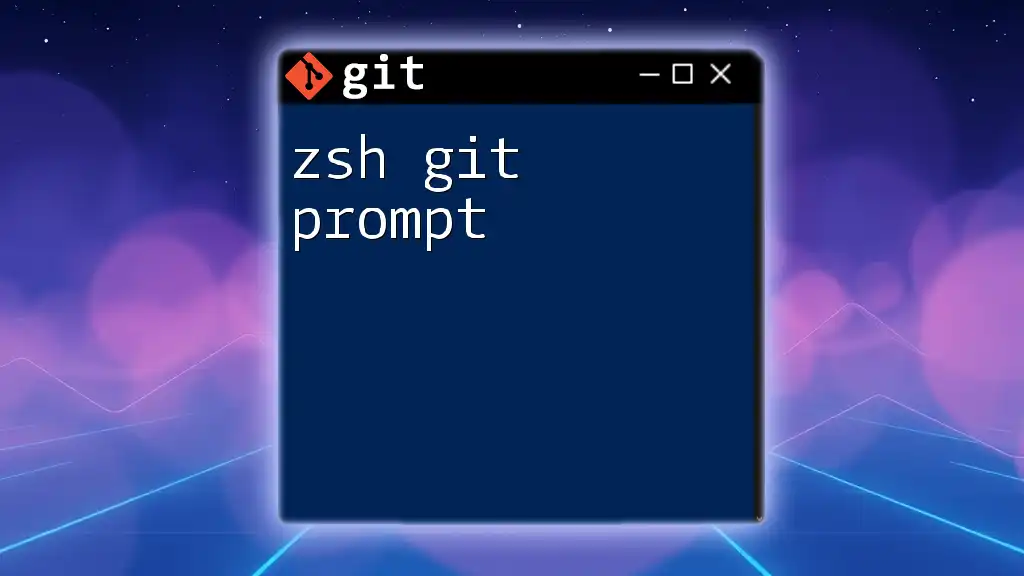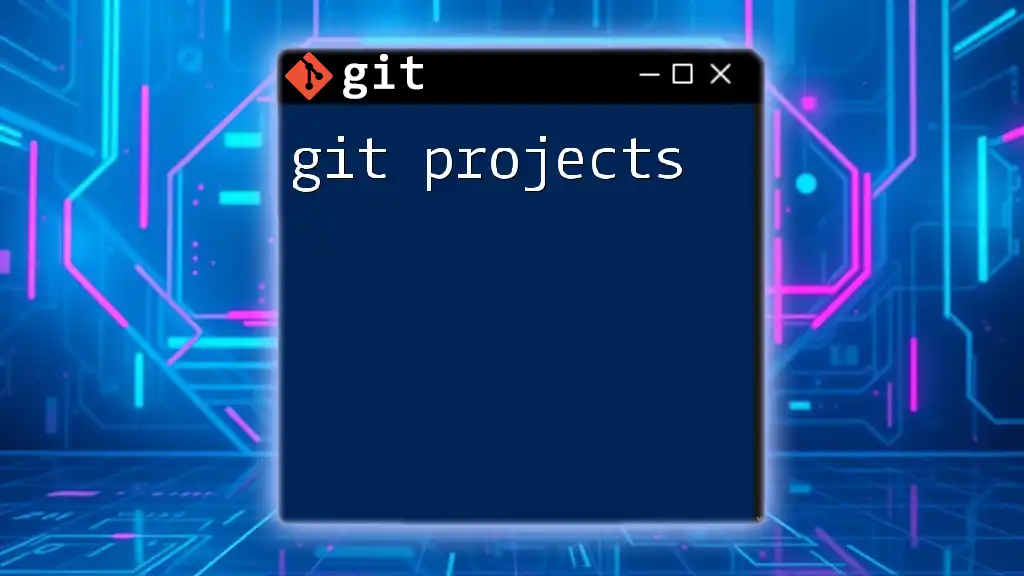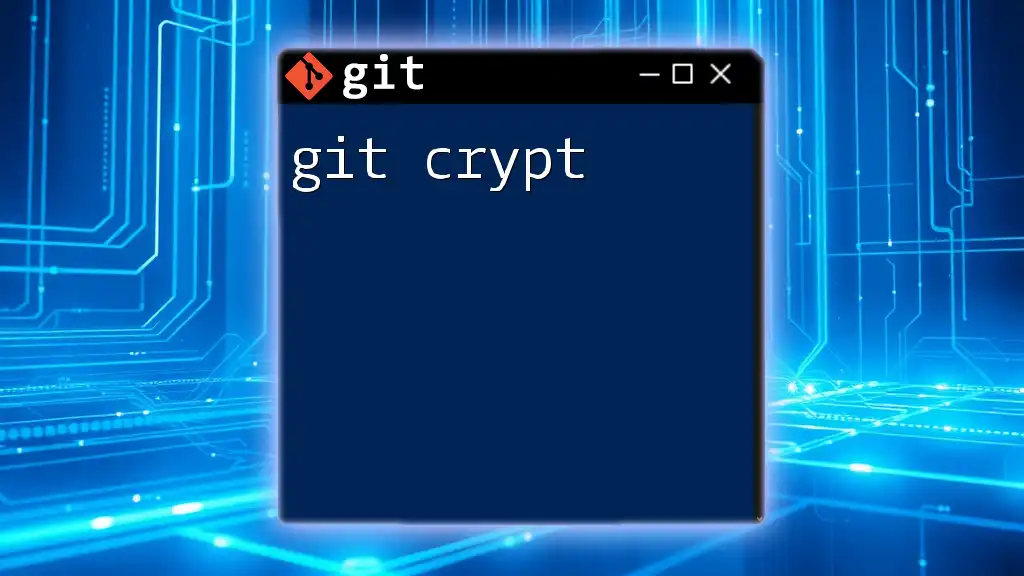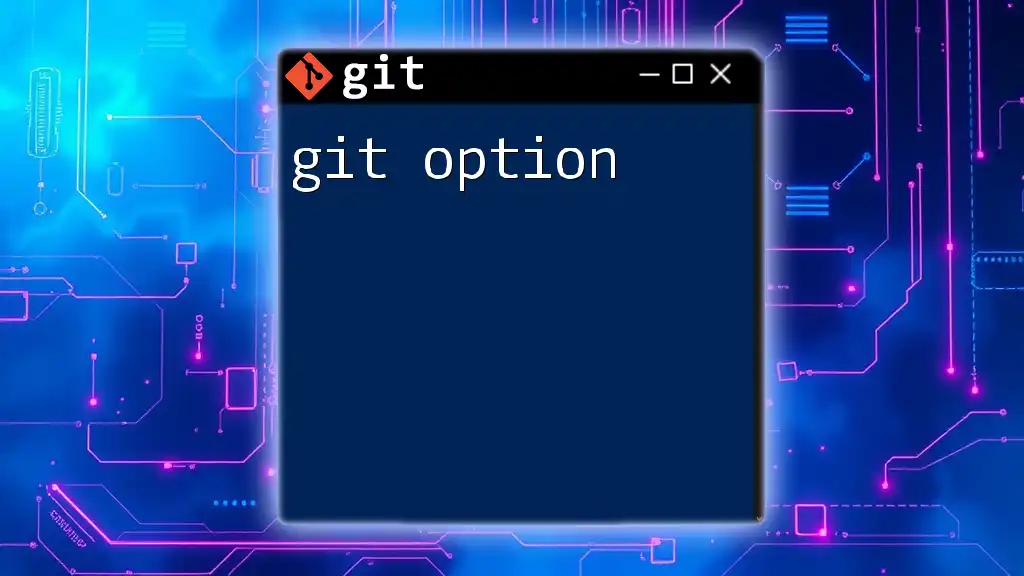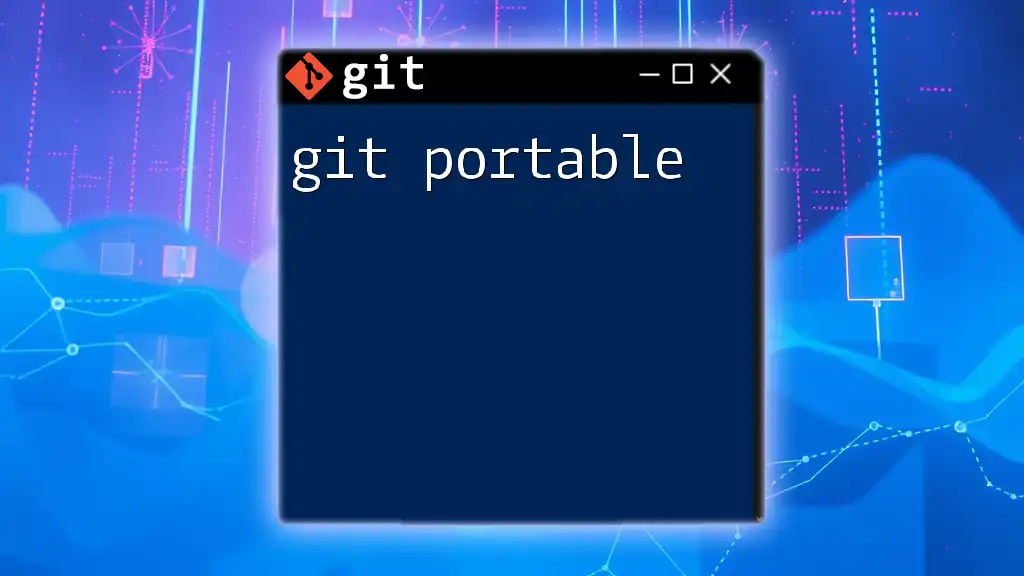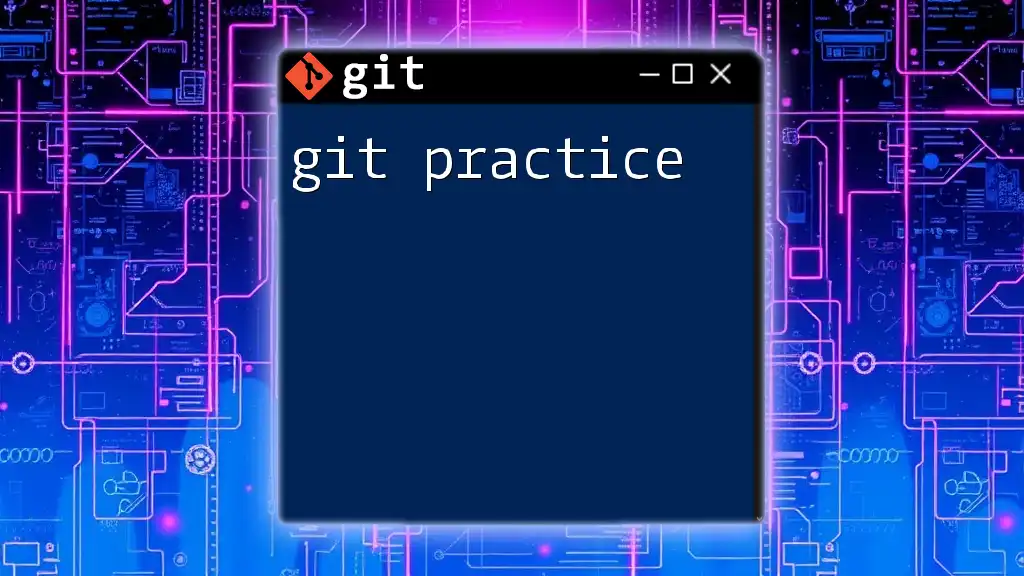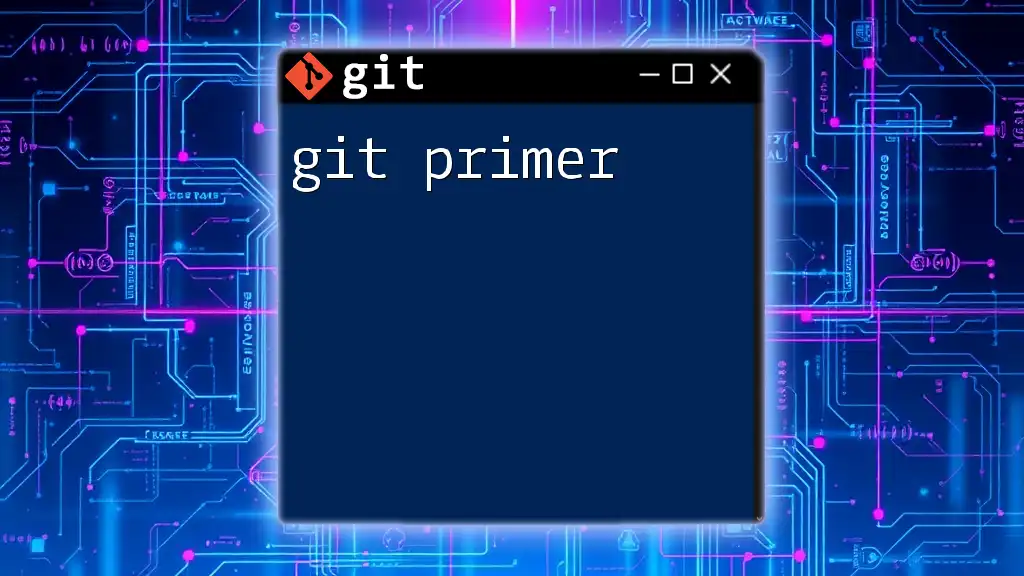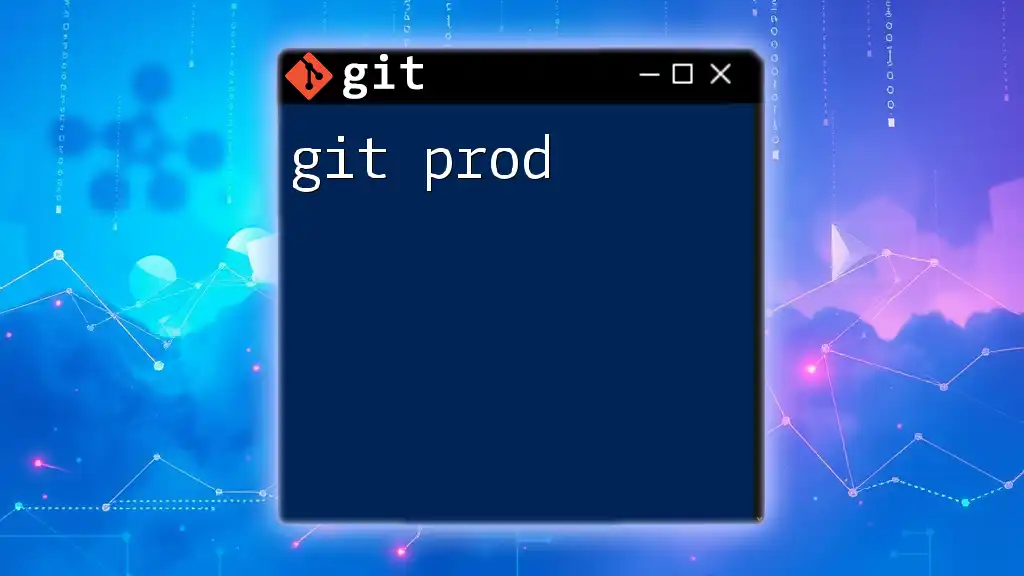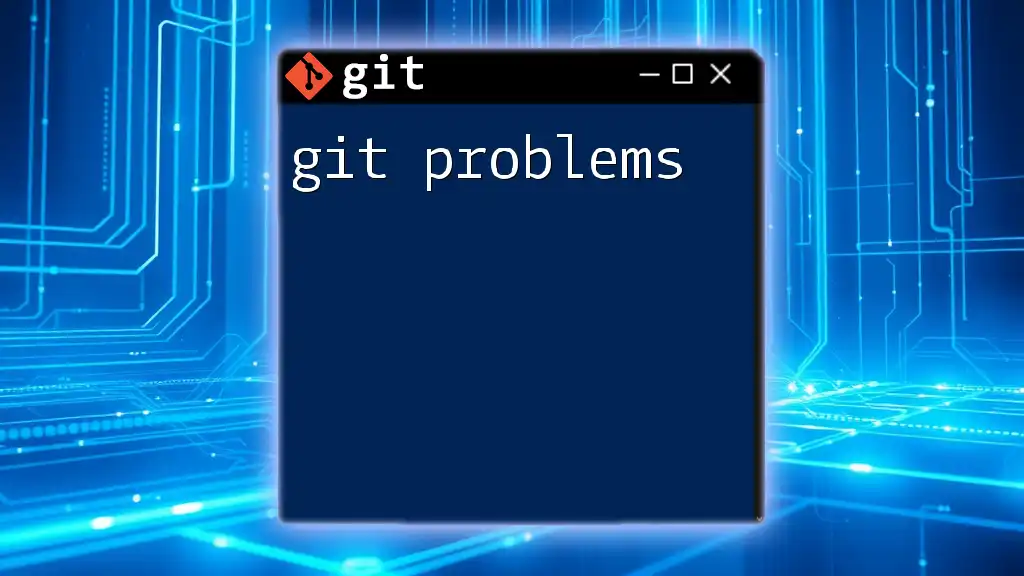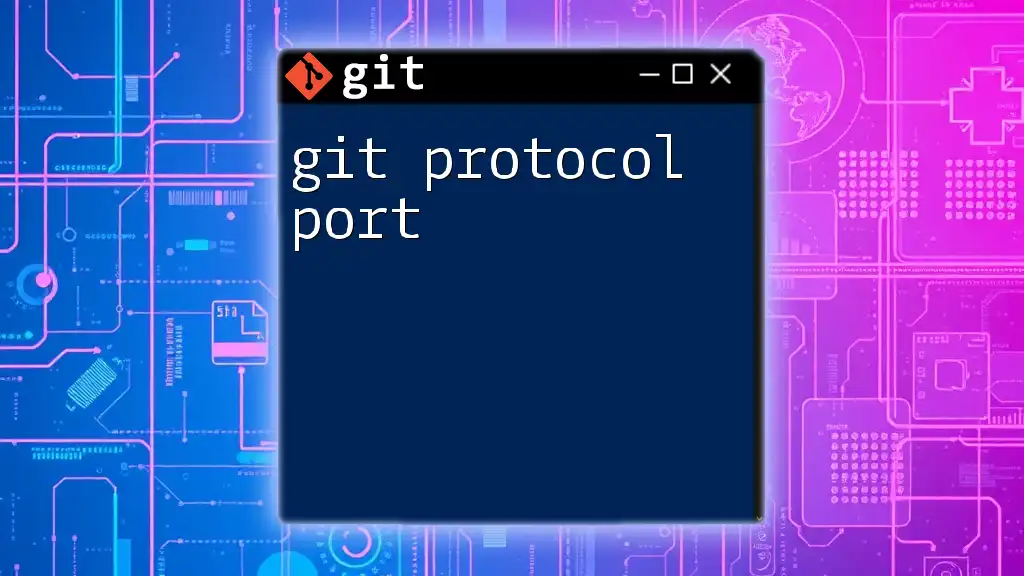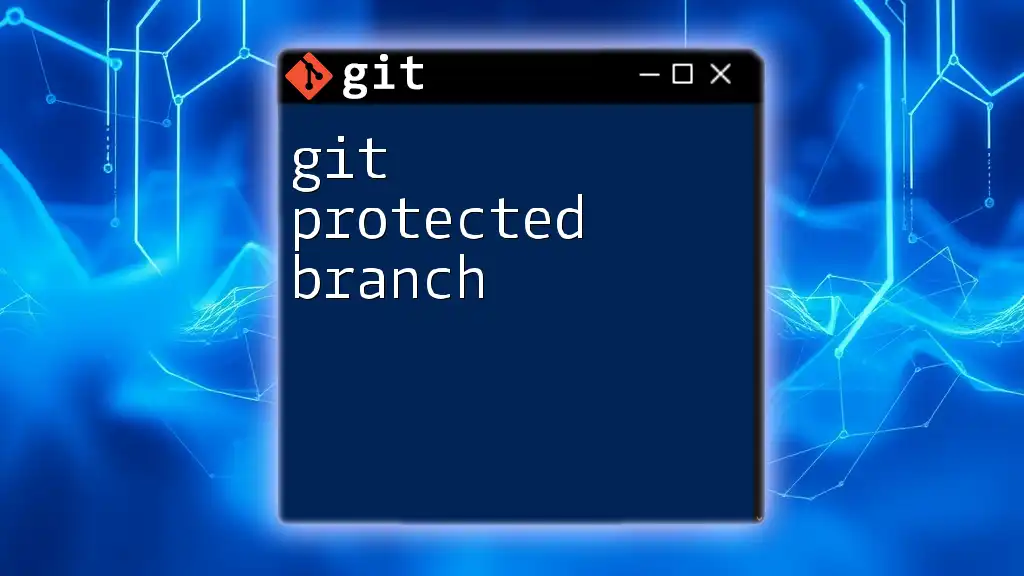The zsh git prompt enhances the command line interface by displaying the current git repository status and branch information, allowing users to quickly understand their version control context.
Here’s a simple configuration snippet for your `.zshrc` file to enable a git prompt:
autoload -Uz vcs_info
precmd() { vcs_info }
setopt prompt_subst
PROMPT='%F{blue}%n@%m %F{green}%~ %F{red}$vcs_info_msg_0_ %F{cyan}➜ %f '
What is a Zsh Git Prompt?
A Zsh Git prompt is a customization of the Zsh (Z Shell) prompt that visually integrates Git status information into your command line. This tool benefits developers by providing real-time feedback about their Git repository state, such as the current branch, staged changes, and more. By using a Zsh Git prompt, you enhance productivity and minimize context switches as you navigate your development workflow.
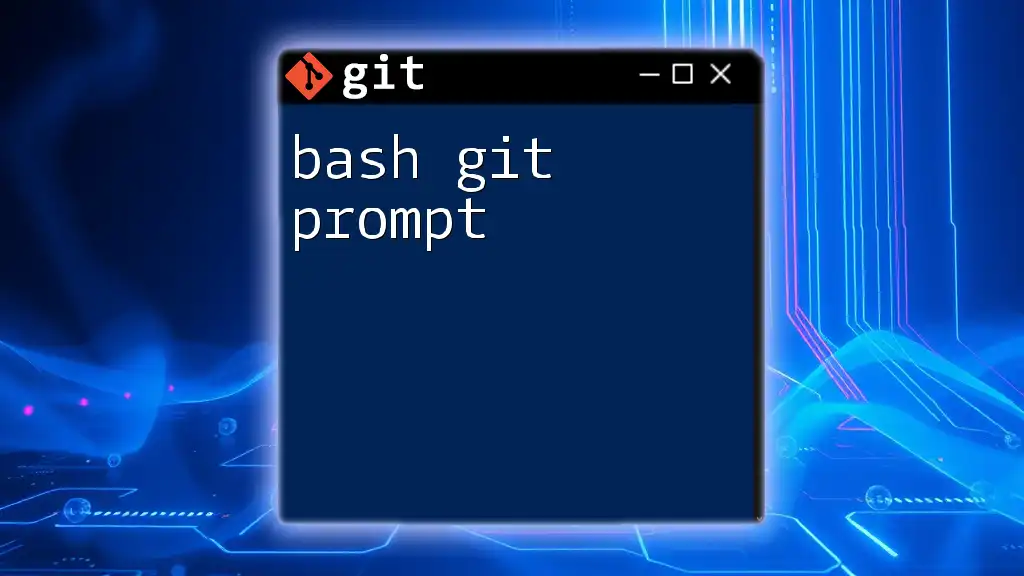
Setting Up Zsh
Installing Zsh
Before you can leverage a Zsh Git prompt, the first step is to install Zsh on your machine. Here’s a brief overview for different operating systems:
-
For macOS:
brew install zsh -
For Ubuntu:
sudo apt install zsh -
For Windows:
You can install WSL (Windows Subsystem for Linux) and follow the Ubuntu installation commands.
Once Zsh is installed, it’s essential to make it your default shell. You can do this with the command:
chsh -s $(which zsh)
Configuring Zsh
Configuration in Zsh is done through the `.zshrc` file, located in your home directory. This file is pivotal for adjusting your Zsh environment and customizations.
For a simple start, you might add the following lines to your `.zshrc`:
# Set the default prompt
export PS1="%n@%m:%~$ "
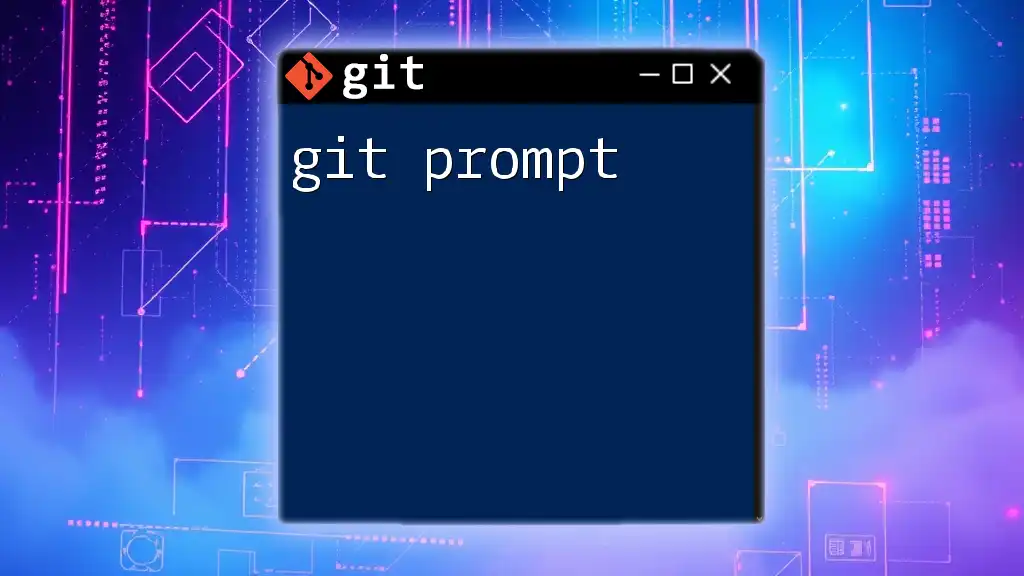
Understanding Prompts
What is a Shell Prompt?
A shell prompt serves as an indicator in the command line interface. It prompts users to enter commands and can include information such as the username, current directory, and previous command exit status.
Customizing Your Git Prompt
Customizing your Zsh prompt to incorporate Git specifics can change how you interact with your version-controlled projects. You can utilize built-in Zsh variables to achieve this.
For instance, here is an example of how to include the current Git branch name in your prompt:
export PS1="%F{green}%1~ %F{blue}$(git_prompt_info)%F{reset}$ "
In this snippet:
- `%F{color}` changes the text color.
- `$(git_prompt_info)` fetches specific Git details, assuming you have the appropriate configurations or scripts set up.
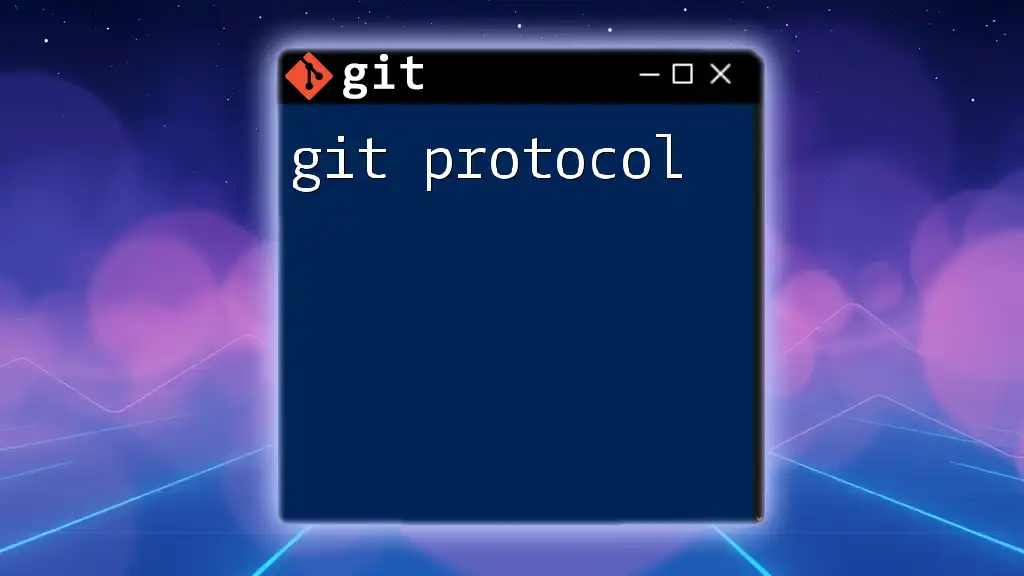
Advanced Zsh Git Prompt Setup
Using Git Prompt Scripts
To take your Zsh Git prompt to the next level, you can use Git prompt scripts like `git-prompt.sh` or `gitstatus.zsh`. These scripts provide enhanced visibility into your Git repository's state.
Installing Git Prompt Scripts
Installing these scripts is straightforward. Start by downloading the script you want to use and source it in your `.zshrc` file.
For example, if you decide to use `git-prompt.sh`, you could do:
# Download the script
wget https://raw.githubusercontent.com/git/git/master/contrib/completion/git-prompt.sh
# Add it to .zshrc
echo 'source /path/to/git-prompt.sh' >> ~/.zshrc
After changing the `.zshrc` file, simply restart Zsh or run `source ~/.zshrc` to apply changes.
Customizing the Git Prompt Script
If you wish to tailor the output further, modify prompts and add additional information, such as the number of unstaged files or the current status. Here’s an example of customizing with colors and symbols:
GIT_PROMPT_START="\[$(tput setaf 2)\](" # Start with green color
GIT_PROMPT_END="\[$(tput sgr0)\] ) " # Ending reset
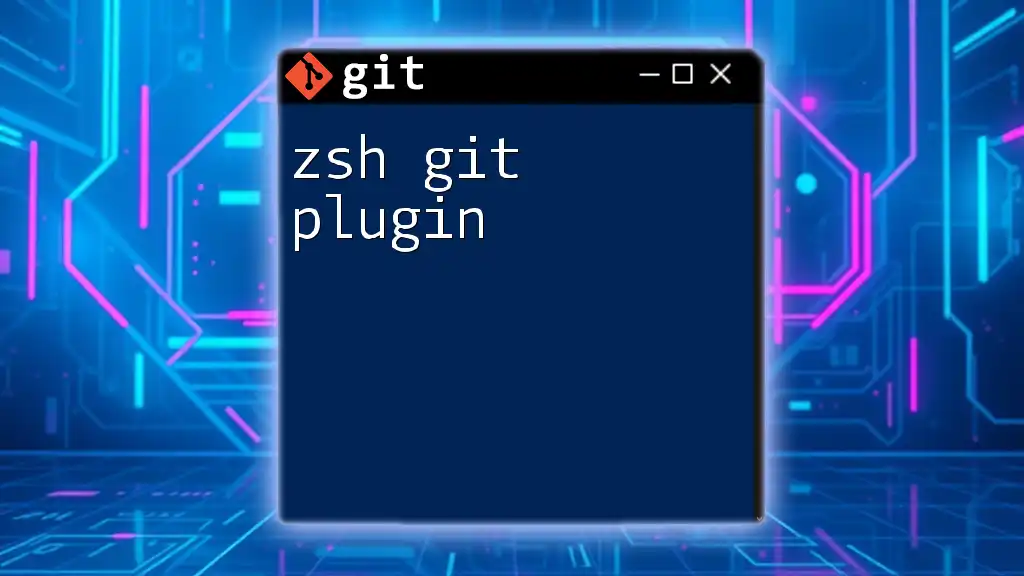
Other Tools for Zsh Git Prompt Enhancement
Powerlevel10k
Powerlevel10k is a popular theme for Zsh that enhances not only the aesthetics but also integrates significant features. It optimizes your prompt for speed and allows various configurations out of the box.
Installation and Configuration
Installing Powerlevel10k requires cloning the repository and modifying your `.zshrc`:
git clone --depth=1 https://github.com/romkatv/powerlevel10k.git ~/powerlevel10k
echo 'source ~/powerlevel10k/powerlevel10k.zsh-theme' >> ~/.zshrc
Once reloaded, you’ll be prompted for configuration options to tailor your prompt precisely to your liking.
Oh-My-Zsh
Oh-My-Zsh is a community-driven framework for managing Zsh configurations. It supports various plugins, including one specifically for Git.
Enabling Git Plugin
To enable the Git plugin, add it to the plugins array in your `.zshrc`:
plugins=(git)
This integration provides you with aliases and functions to streamline Git usage right from the shell.
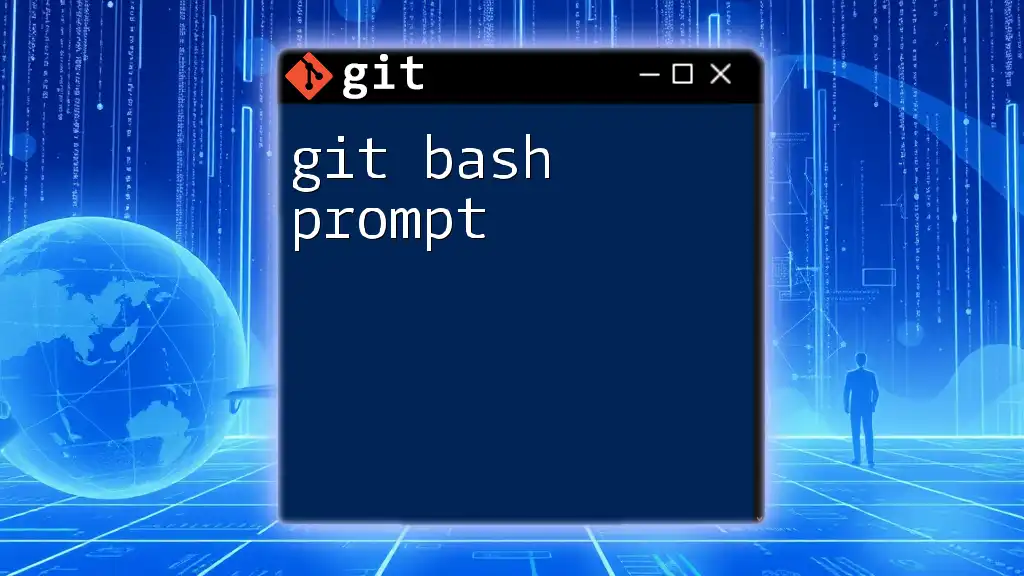
Troubleshooting Common Issues
Prompt Not Displaying Git Branch
If your prompt isn’t showing the current Git branch, ensure that your script is sourced correctly in the `.zshrc` file and that you’re within a Git repository.
Performance Issues
Long prompts or complex status checks can slow down your terminal. A good practice is to limit the information displayed to what you frequently need. You can add conditions to customize outputs based on context.
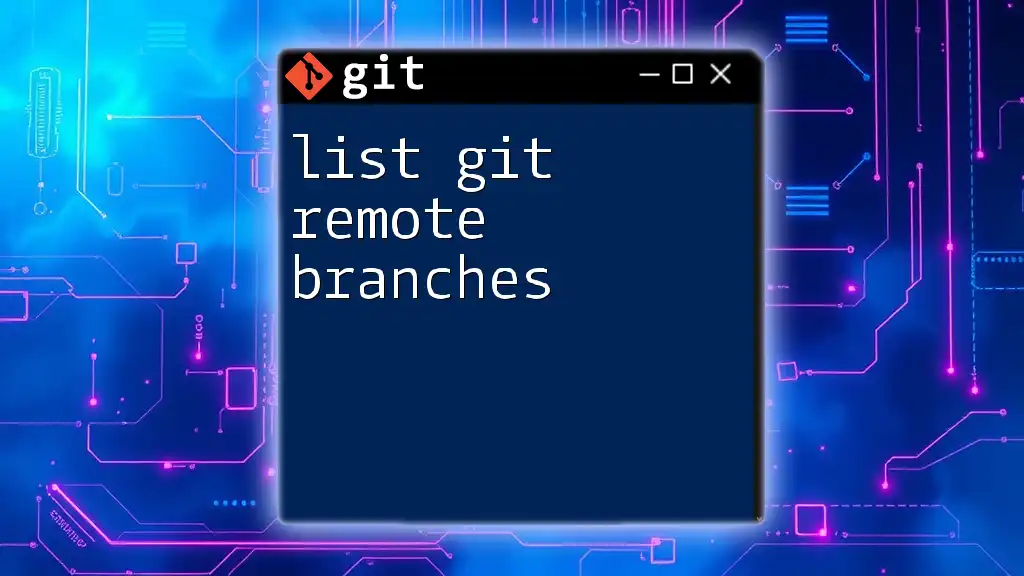
Conclusion
Leveraging a Zsh Git prompt significantly enhances your command-line experience by seamlessly integrating vital Git information. This customization allows developers to remain in the flow of coding without needing to switch contexts often.
Experimenting with different configurations and tools like Powerlevel10k or Oh-My-Zsh will allow you to find the perfect balance of functionality and aesthetics that best suits your workflow.
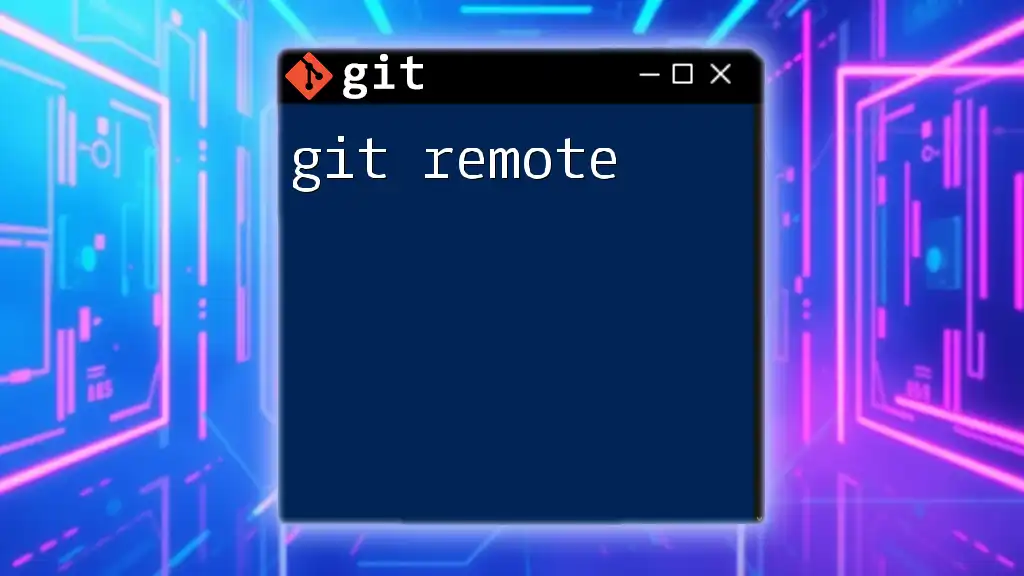
Further Reading and Resources
For a deeper understanding of Zsh and Git, consider consulting the official documentation for both tools, as well as community-led tutorials that highlight advanced features and configurations.

